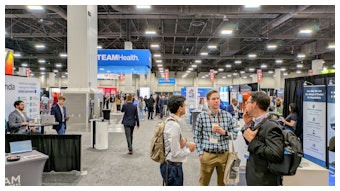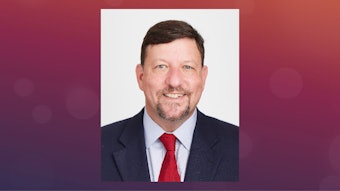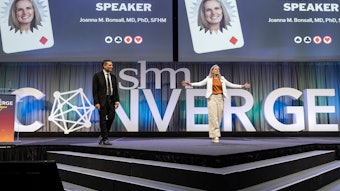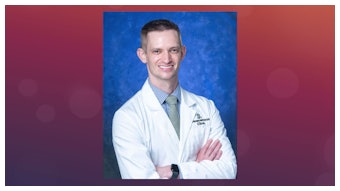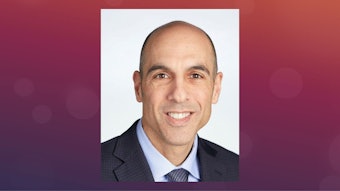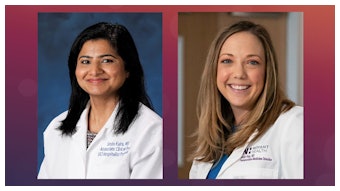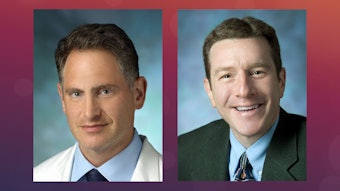Waking up to sleep challenges
Patient sleep study is one of 2023’s Best of Research and Innovations
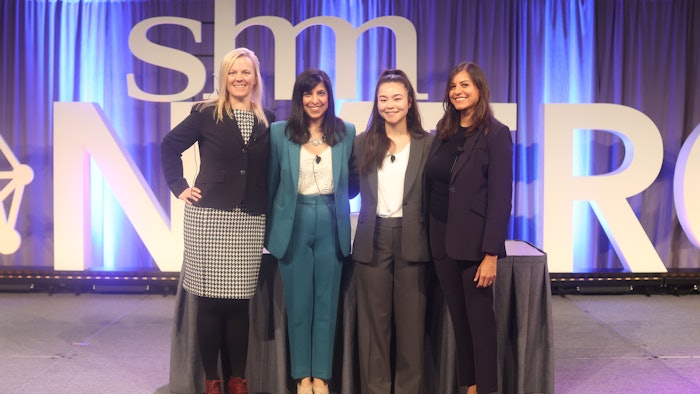
Getting a good night’s sleep isn’t always possible for hospitalized patients, but it is critical for their overall health and recovery. How can hospitalists balance a patient’s need for sleep with the need for vitals, monitoring and other distractions that come along with the hospital setting?
That was the question that inspired Vineet Arora, MD, MAPP, MHM, and her team at the University of Chicago Medicine to launch the Inpatient Sleep Loss: Educating and Empowering Patients, or I-SLEEP study. The study was one of three studies presented during Sunday’s Best of Research and Innovations in 2023.
“Patients face challenges getting quality sleep in the hospital, we can all agree on that,” Dr. Arora said. “Hospital sleep contributes to poor recovery, both in the hospital and after discharge.”
To assess how hospitalists might better approach the issue of patient sleep, the I-SLEEP study created a sleep kit that included earplugs, eye masks and a brochure on the benefits of better sleep. Patients were also shown an educational video emphasizing the importance of sleep.
Dr. Arora said patients enrolled in the study received 15 minutes more sleep per night for each night they were in intervention. And while that may not seem like much, she said it made a difference.
“This is the first, randomized controlled trial testing an intervention aimed at educating and empowering hospitalized patients to improve sleep,” she said. “And in the trial, we show that I-SLEEP was associated with reduced patient reported sleep disruptions from the three top disruptors — medication, tests and vitals. Each day of intervention was associated with greater objective inpatient sleep as well. We believe that I-SLEEP is a patient-centered intervention that has potential to empower patients to advocate for more patient-centered care and better sleep in the hospital.”
Structured meetings with junior hospitalists on anticipated complex discharges
For junior hospitalists, managing difficult patient discharges is a task fraught with pitfalls, and having the support of their senior staff can be critical in making sure those discharges go as smoothly as possible
Ruchi Jain, DO, MS, co-director of Ronald Reagan and Santa Monica Hospital Medicine Practices at UCLA Health, presented the findings of a study, “Structured Meetings with Junior Hospitalists on Anticipated Complex Discharges,” which aimed to find out whether structured meetings between a director and a junior hospitalist when on direct care could contribute to the patient discharge process and help reduce stress and burnout among junior hospitalists.
Dr. Jain said one example of a case used in the study was that of a 36-year-old male with frequent hospitalizations for sickle cell pain crisis who has difficulty weaning from IV paint medications and often delays discharge by reporting he does not feel ready to go home.
After scheduling these structured meetings between junior and senior hospitalists to consult on these cases, Dr. Jain said in 92% of the cases used in the study, the hospitalists felt like they had a clear plan in place at the end of the discussion.
“Some things that we learned from this project — one is that these sessions aren’t lengthy, and these meetings are feasible so it’s easy to take back this project to some of your own institutions,” she said. “Because the meetings aren’t very long, they’re feasible and the hospitalists can feel supported and get real-time feedback on how they’re managing difficult cases. For those of us in leadership, something that I learned is the more we check in, the more we learn about systemwide issues that our hospitalists are facing and hopefully we can brainstorm some ideas on how we can make those better.”
Medicaid expansion impact on heart failure mortality
With the passage of the Affordable Care Act in 2010, most states expanded their Medicaid coverage as part of the then-new health care plan. But did that expansion make a difference when it came to heart failure mortality?
Julianne Ghiorzi, MS2, a student researcher in the Department of Medicine at Eastern Virginia Medical School, was part of a team that explored that very question by examining data sets from states that expanded Medicaid in 2014 compared with those that did not expand until 2019. They hypothesized that states with Medicaid expansion would have a lower rate of heart failure mortality than those states that did not expand Medicaid.
“After 2014, hospitals located in non-Medicaid expansion states had a significant increase in mortality rates,” Ghiorzi said. “Yet the mortality rate did not change in hospitals located in Medicaid expansion states.”
Ghiorzi said further studies would be needed to validate those results and determine what they could mean for patient care going forward.
“This difference may be due to improved health access for Medicaid expansion,” she said. “But this hypothesis will need to be validated in future studies.”

